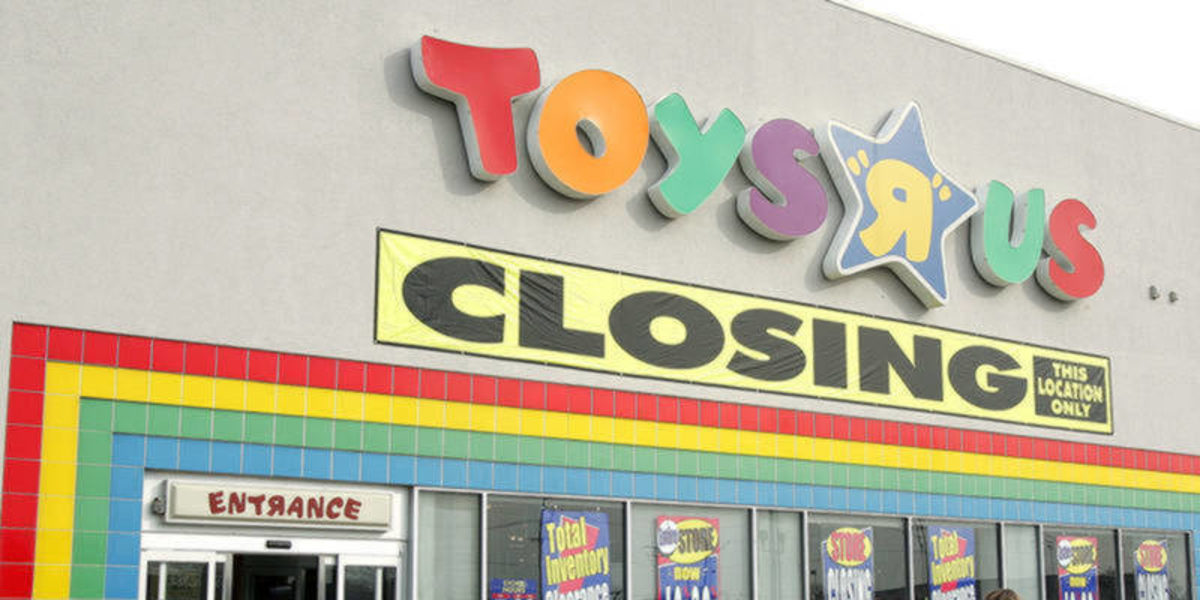Do you remember looking forward to going into the “toy aisles” when you were a kid? The toy aisles were always an oasis of relief from the boredom of shopping with your mother in a department store. As soon as you were inside Kmart, Sears or other department store, you started asking to go to the toy aisles.
When you were finally done trying on that winter coat or new pair of school pants, Mom continued shopping uninterrupted. while you headed for the land of Tonka, Ideal and Mattel.
But by the 70’s, toy aisles were disappearing. Many department stores quit selling toys once Toys “R” Us — a big-box store that sold nothing but toys — opened in most major markets.
Toys “R” Us was considered a “category-killer” — a business that specializes so thoroughly and efficiently in one sector that it pushes out competition from both smaller specialty stores and larger general retailers in a market.
One of the weapons the category killer Toys “R” Us used to slaughter the competition was a cute little jingle that kids loved:
I don’t wanna grow up, I’m a Toys R Us kid
They got a million toys at Toys R us that I can play with
I don’t wanna grow up, I’m a Toys R Us kid
They got the best for so much less, it’ll really flip your lid
But fast forward to 2018 and the Toys “R” Us Kids have grown up. And they must be buying most toys for their kids online, because Toys “R” Us recently announced liquidation of all of its stores.
Now, new category-killers called “subscription box businesses” are arriving. There are more than 2,000 of them active in the U.S. And like 2,000 killer bees, they’ve attacked many markets — beauty, fashion, food and more. The queen bees (market leaders) are: Birchbox, Dollar Shave Club, Loot Crate, Blue Apron and Graze. Once again, the victims are often big boxes.
Most subscription box services require that you pay a monthly fee, fill out a profile and indicate the types of products you like. Each month you get a box with a new selection of those items based on your preferences. You keep the ones you want and send back the ones you don’t.
Who are the customers? Hitwise, the consumer intelligence firm, studied the 5.7 million subscription box shoppers in the US today and found an above average amount have five commonalities: college degree, liberal politics, female, household income exceeds $100k and young children.
Some big box retailers are smarter now and have taken an “offense is the best defense” approach by starting their own subscription box services — even Walmart has one.
High-end retailers like Nordstroms are fighting back also. Hanna, a Nordstroms customer in Baltimore joined Nordstrom’s Trunk Club. I interviewed her for this column:
Nordstroms assigns a personal shopper who selects things to go in my trunk. And I like getting a box in the mail — everyone does — it’s fun. I like the ‘reveal’ and being pleasantly surprised by some of the items. And it’s really convenient. With kids and a job, who has time to go clothes shopping for yourself?
No matter the source, it appears subscription clubs are here for a while. The only thing they might be missing is a jingle, but I have a good starting suggestion…
I don’t wanna go out, I’m a subscription box girl,
They got a million things to send me, so I’ll give it a whirl.
See you in the toy aisles.













Comment